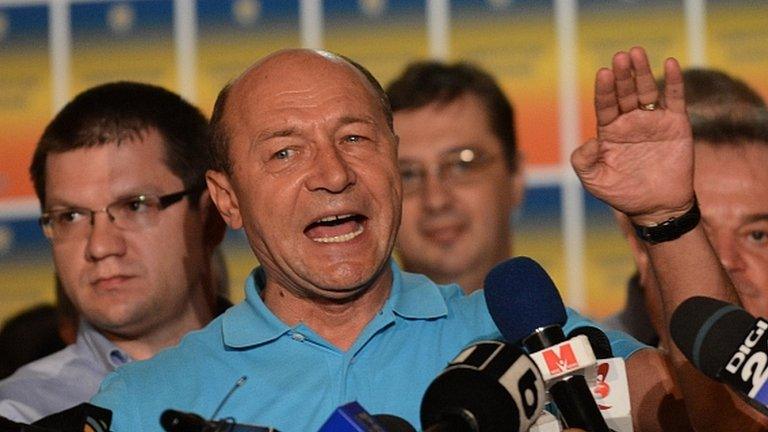Romania elects president to replace Basescu
- Published
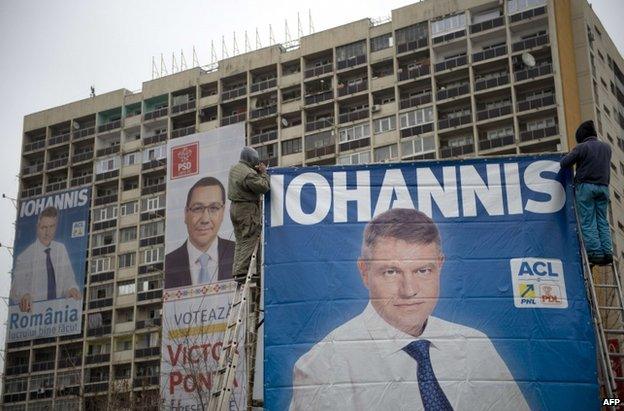
A poster of Victor Ponta between two of his rival Klaus Iohannis in Bucharest
Romanian voters have taken part in a presidential run-off which pitted the Social Democratic prime minister against a centre-right candidate.
Exit polls suggest a tight contest between Prime Minister Victor Ponta and Klaus Iohannis, an ethnic German mayor.
Mr Ponta has promised both to reduce the budget deficit and increase pensions and the minimum wage.
President Traian Basescu, his long-time political foe, cannot stand for re-election after serving two terms.
Two exit polls indicated Mr Ponta was slightly ahead of his rival but at least two others suggested Mr Iohannis was in the lead.
A fifth suggested they had 50% of the vote each.
These polls do not include votes cast by Romanians living abroad, many of whom are disillusioned with Mr Ponta.
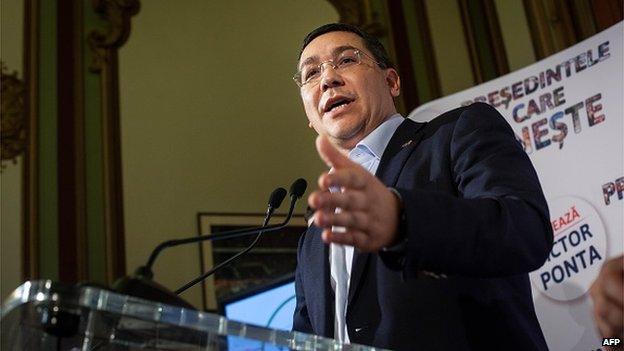
Despite persistent corruption in Romania, Victor Ponta leads the opinion polls
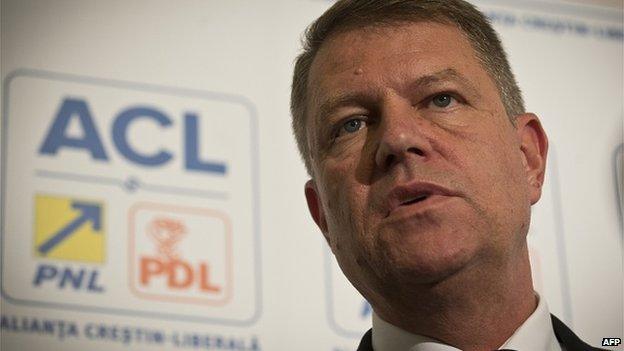
Klaus Iohannis has promised to crack down on corruption
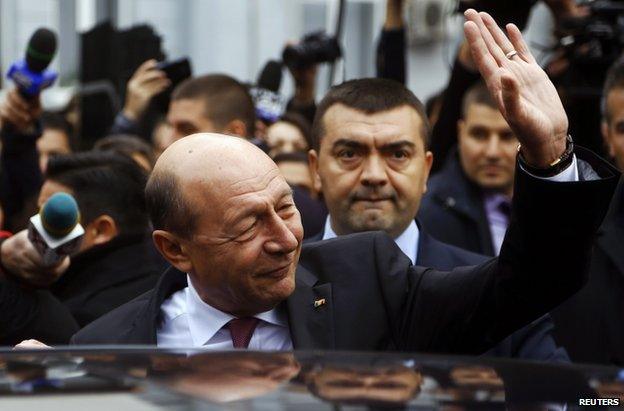
Traian Basescu (waving) could not stand for re-election this year having already served two presidential terms
Since taking office as prime minister two years ago, Mr Ponta, 42, has overseen economic growth and political stability in Romania, the EU's second-poorest state after Bulgaria.
It is also one of the EU's most corrupt member states and Mr Iohannis, 55, has promised to crack down on wrongdoing and strengthen the independence of the judicial system.
However, critics accuse the mayor of Sibiu, a town of around 155,000 people in Transylvania, of seeking to avoid confrontation with the outspoken Mr Ponta, who has maintained his lead in opinion polls.
As prime minister, Mr Ponta often feuded with President Basescu and their poor relations delayed much-needed reforms in the public sector.
The International Monetary Fund, which has signed three precautionary aid deals with Romania since 2009, urged the country not to jeopardise years of progress in getting its spending under control.
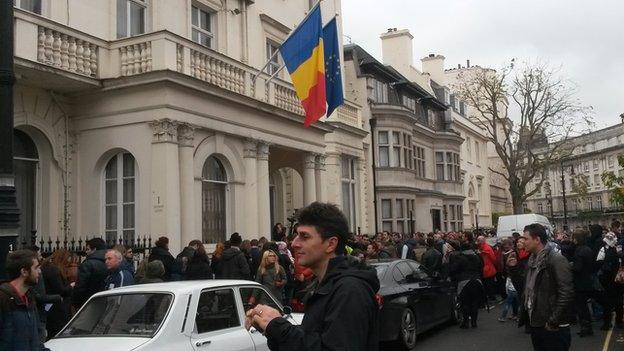
Romanians in London queued up to vote outside the Romanian Cultural Institute
A sizeable part of the electorate - up to four million Romanians - lives abroad.
After the first round of voting, there were protests at polling stations in Paris, London, and other cities when voters had to queue for hours, with some unable to vote, leading to the resignation of the foreign minister last week.
- Published28 June 2017
- Published19 May 2014
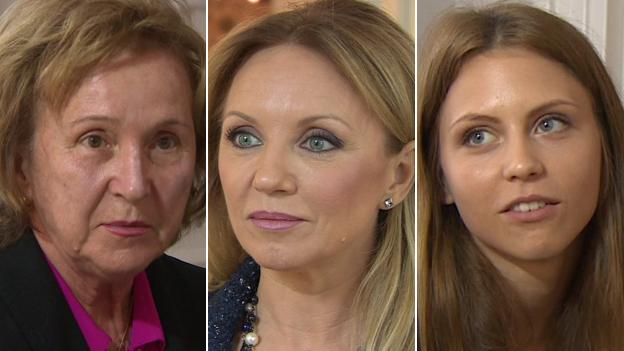
- Published30 July 2012
